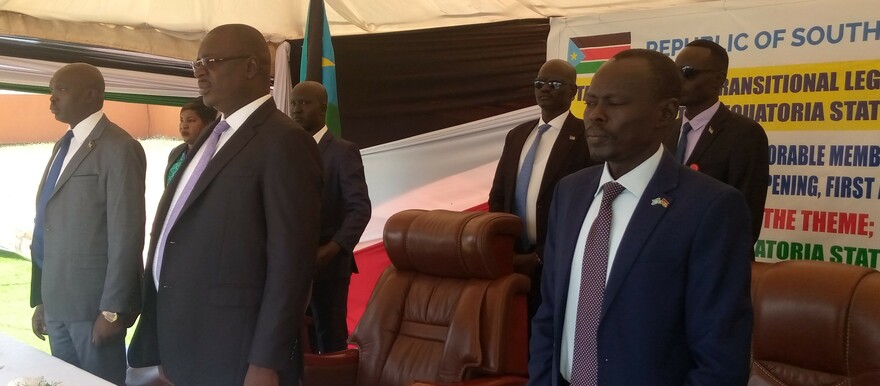The legislative assembly in South Sudan’s Central Equatoria State on Monday reopened for the second session following a recess.
The parliament was reopened by State Governor Emmanuel Adil Anthony. Cabinet ministers and national lawmakers attended the opening session.
Speaker Peter Wani Kulang, while officially opening the assembly, said the state parliament was supposed to open in early April but was delayed due to unavoidable circumstances.
Wani said during the first session of the state parliament, the MPs demonstrated a solid commitment to the business, approving the speech of the governor, passing the conduct of business regulation, passing the 2021/2022, and 2022/2023 fiscal year budgets and approving the state strategic plan 2021-2024 among other achievements.
He noted that the parliament faced multiple financial setbacks in executing its oversight role, including an insufficient budget to facilitate the work of the parliament and a lack of mobility, fuel, and accommodation, among others.
Meanwhile, Governor Emmanuel Adil Anthony said the reopening of the parliament brings new momentum to advance the state vision of a united and prosperous state.
He revealed that the state had registered nearly a million returnees displaced to the neighbouring countries and internally during the conflict and voluntarily returned home.
“Following the statistics obtained from the counties, we have registered 996,540 returnees. I thank all our people who have made the right choice to return home due to the restoration of peace and security. We encourage all to come home together to build Central Equatoria State,” Adil said.
He pointed out that the state government is working hard to put in place mechanisms towards reviving people’s livelihood so that they can contribute to socio-economic development.
Adil appreciated the roles played by humanitarian agencies and faith-based organizations for their complementary roles in supporting returnees. He urged them to double their support as the number of returnees increased.
The senior state official accused rebel groups who are not part of the 2018 peace agreement of holding some areas, hostage.
“The non-compliance of the holdout groups to join the peace wagon is holding some of our areas, hostage. This has made it difficult for our displaced populations and those in refugee camps to return home,” he said.
“In some instances, the holdout groups continue to lay ambushes against our people and kidnap civilians. They kidnapped the head chief of Otogo Payam, the Executive Chief of Ombasi, and Lojulo, among others. Only two weeks ago, they released the head chief of Otogo and three other civilians,” Adil concludes.




